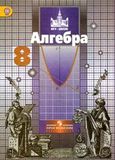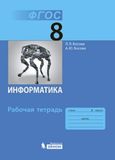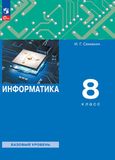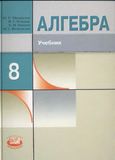Упр.3 Юнит 6 Уроки 13-14 ГДЗ English Кузовлев 8 класс
III АНГЛИЙСКИЙ В ПРАКТИКЕ (ЛЕКСИКА/ГРАММАТИКА)
1. При разных обстоятельствах молодежь одевается по-разному или должна так делать.
Прочитайте письмо мальчика-подростка в газету Ранние Времена и несколько ответов на его письмо. Вставьте в пропуски глаголы в подходящей форме (Прошедшее простое или Бы). Поставьте запятые, где необходимо. В начале есть пример (0).
Недавно меня пригласили на ужин. Я думал, будет нормально одеться повседневно. Поэтому я надел джинсы и свитер, когда я пришел, все гости были приодеты и я чувствовала себя лишним. Что бы Вы посоветовали?
0. Если я был (пригласить) на ужин моего друга, я (думать) дважды, что надеть.
Если бы я был приглашен на ужин своего друга, я бы подумал дважды о том, что надеть.
1. Если моя подруга Эмми (попросить) меня прийти к ней на день рождения, я (спросить) ее, что надеть.
2. Мой друг (расстроиться), если я (прийти) на его вечеринку в повседневной одежде.
3. Я никогда не (одеваться) повседневно, если вечеринка (проводиться) в клубе.
4. Если мой друг (прийти) на мою вечеринку в джинсах, я (не заметить).
5. Моя подруга (пойти) домой и переоделась, если бы она не (быть одетым) надлежащим образом.
Решение #
1. asked; would ask (попросила, спросил бы)
2. would feel upset; came (расстроился бы, пришел)
3. would never dress; was organized (никогда не одеваюсь, проводится)
4. came; wouldn’t take any notice (пришел, не заметил бы)
5. would go; weren’t dressed (пошла бы, не была одета)
2. Переделайте эти предложения, используя конструкцию “Я хотел бы”. В начале есть пример (0).
0. Брендовая одежда очень дорогая.
Я бы хотел, чтобы брендовая одежда не была такой дорогой.
1. Русские модельеры не такие популярные, как итальянские или французские дизайнеры.
2. Немногие люди могут позволить себе одежду высокой моды.
3. В нашем городе нет магазинов Маркс и Спенсер.
4. Мальчики не обращают особого внимания на свою внешность.
5. Показы мод нельзя посмотреть онлайн.
6. Я не могу переделать одежду, которая мне не подходит.
Решение #
1. I wish Russian fashion designers were as popular as Italy or French designers.
(Я бы хотел, чтобы русские модельеры были такими же популярными, как французские или итальянские дизайнеры.)
2. I wish many people can afford to buy highly fashionable clothes.
(Я бы хотел, чтобы многие люди могли позволить себе покупку одежды высокой моды.)
3. I wish there were Marks and Spencer stores in our city.
(Я бы хотел, чтобы в нашем городе были магазины Маркс и Спенсер.)
4. I wish boys paid more attention to their appearance.
(Я бы хотел, чтобы мальчики больше внимания обращали на свою внешность.)
5. I wish fashion shows could be seen online.
(Я бы хотел, чтобы показы мод можно было увидеть онлайн.)
6. I wish I could customize pieces of clothing that do not fit me.
(Я бы хотел, чтобы я мог переделать предметы одежды, которые мне не подходят.)
3. Прочитайте текст ниже и затем выберите варианты (a, b, или c), чтобы вставить в пропуск. В начале есть пример (0).
Во времена Тюдоров дети носили (0) одежду в таком же стиле, как носили их родители.
В период с 1811 до 1820 года девочки продолжали быть (1) жертвами желания своих родителей соответствовать популярному представлению о красоте. Популярное представление о красоте в те времена было таковым: худые тела, узкие талии и бледный (2) внешний вид. В 1880х было (3) модно носить очень длинные перчатки вечером. К концу 1880х вязаный костюм (так называемое трикотажное платье) (4) вошел в моду. (5) Ювелирные украшения были в моде для женщин, меха были в моде и для мужчин, и для женщин. Во времена Второй мировой войны в Британии фасоны были простыми: накладные (6) плечики и юбки чуть ниже колен, маленькая шляпа и функциональные сумки. В конце 1970х (7) спортивная одежда вошла в моду. К началу 1980х (8) спортивные костюмы и спортивная обувь стали модной униформой. Сегодня (9) пирсинг тела заменил тату среди более эксцентричной молодежи Лондона. Любая часть вашего тела может быть (10) проколота кольцом, штангой или гвоздиком. Если вы посещаете Лондон из-за границы и хотите быть в курсе последних трендов Лондона, вам следует читать модные журналы.
Решение #
1 - а) victims (жертвы),
2 - а) appearance (внешний вид),
3 - b) fashionable (модно),
4 - b) came into (вошел в),
5 - b) Jewellery (ювелирные украшения),
6 - с) shoulders (плечики),
7 - b) sportswear (спортивная одежда),
8 - а) tracksuits (спортивные костюмы),
9 - с) piercing (пирсинг),
10 - b) pierced (быть проколотым),
11 - с) to keep up to date with (быть в курсе)
Приведем выдержку из задания из учебника Кузовлев 8 класс, Просвещение:
III USE OF ENGLISH (VOCABULARY/GRAMMAR)
1. For different occasions young people dress differently or are supposed to do so.
Read the letter of a teenage boy to the Early Times newspaper and a few replies to his letter.
Fill in the gaps with the appropriate forms of the verbs (Past Simple or would). Put commas where necessary. There is an example for you at the beginning (0).
I was invited to a dinner party recently. I thought it would be okay to dress casually. So I wore jeans and a sweater, when I got there all the guests were dressed up and I felt really left out. What would you advise?
0 If I (to be invited) to my friend’s dinner party, I (to think) twice what to wear.
If I was/were invited to my friend's dinner party. I would think twice about what to wear.
1 If my friend Emmie (to ask) me to come to her birthday party, I (to ask) her how to dress.
2 My friend (to feel upset) if I (to come) to his party wearing something casual.
3 I never (to dress) casually if a party (to be organised) in a club.
4 If my friend (to come) to my party in jeans, I (not to take any notice).
5 My friend (to go) home and change her clothes if she (not to be dressed) in a proper way.
2. Transform the sentences using I wish. There is an example for you at the beginning (0).
0 Brand name clothes are very expensive.
I wish brand name clothes were not very expensive.
1 Russian fashion designers are not as popular as Italian or French designers.
2 Not many people can afford to buy highly fashionable clothes.
3 There are no Marks and Spencer stores in our city.
4 Boys do not pay much attention to their appearance.
5 Fashion shows cannot be seen online.
6 I cannot customize pieces of clothing that do not fit me.
3. Read the following text and then choose the correct alternative (a, b, or c) to fill in the gaps. There is an example for you at the beginning (0).
In Tudor Times* children wore the same style of (0) clothing as their parents.
In the period from 1811 to 1820 girls continued to be (1) victims of their parents’ wish to match the popular idea of beauty. The popular idea of beauty in that period was: slim bodies, tight waists and pale (2) appearance. In the 1880s it was (3) fashionable to wear very long gloves in the evening. At the end of the 1880s a knitted costume (the so-called “jersey dress”*) (4) came into fashion. (5) Jewellery was in fashion for women, furs were in fashion both for men and women. During the Second World War in Britain designs were simple: padded (6) shoulders and skirts to just below the knee, a small hat and functional bag and hoes. In the late 1970s (7) sportswear was brought into the fashion arena. By the early 1980s (8) tracksuits and training shoes had become a fashionable uniform. Today body (9) piercing has replaced tattooing among the more eccentric of London’s youth. Any part of your body can be (10) pierced with a ring, bar or stud. If you are visiting London from abroad and want (11) to keep up to date with all the latest London trends, you have to read the fashion magazines.
Популярные решебники 8 класс Все решебники
*размещая тексты в комментариях ниже, вы автоматически соглашаетесь с пользовательским соглашением





